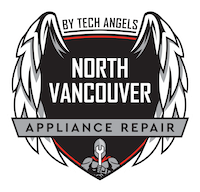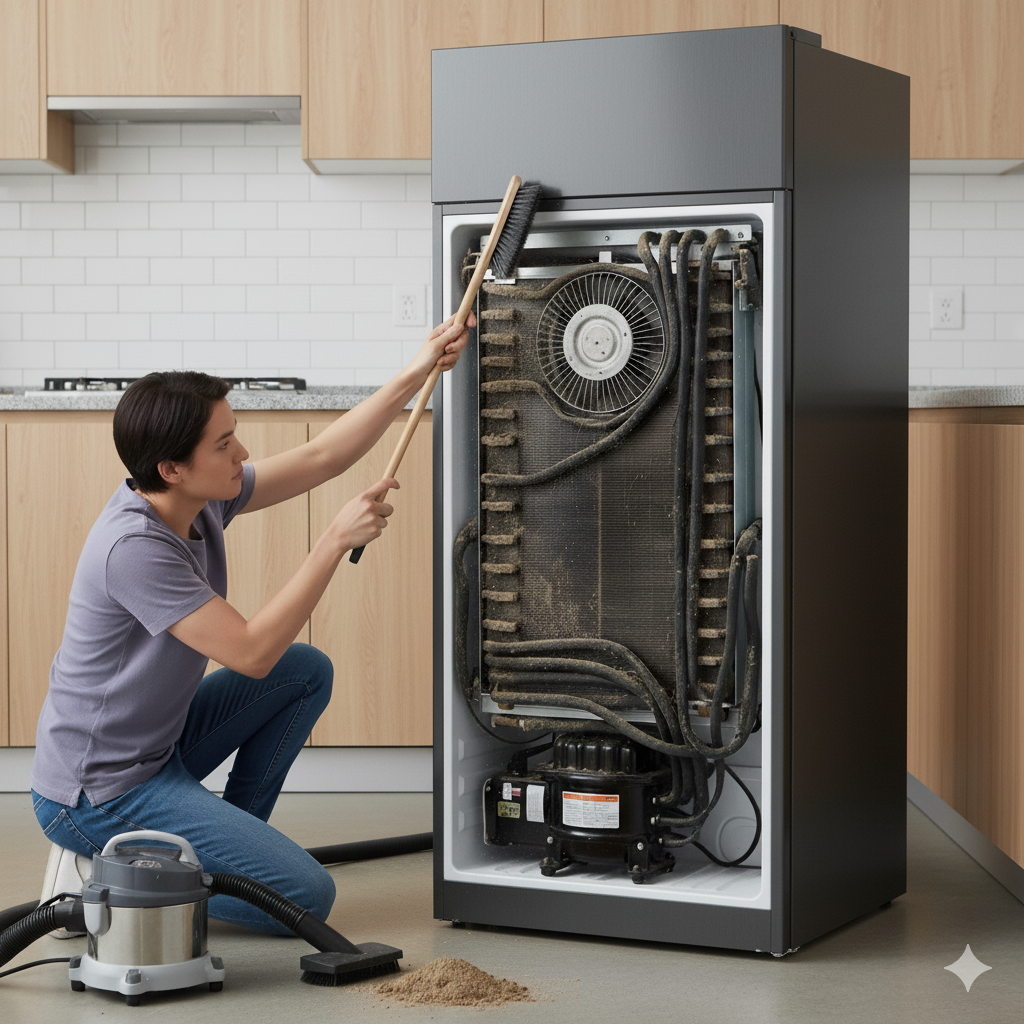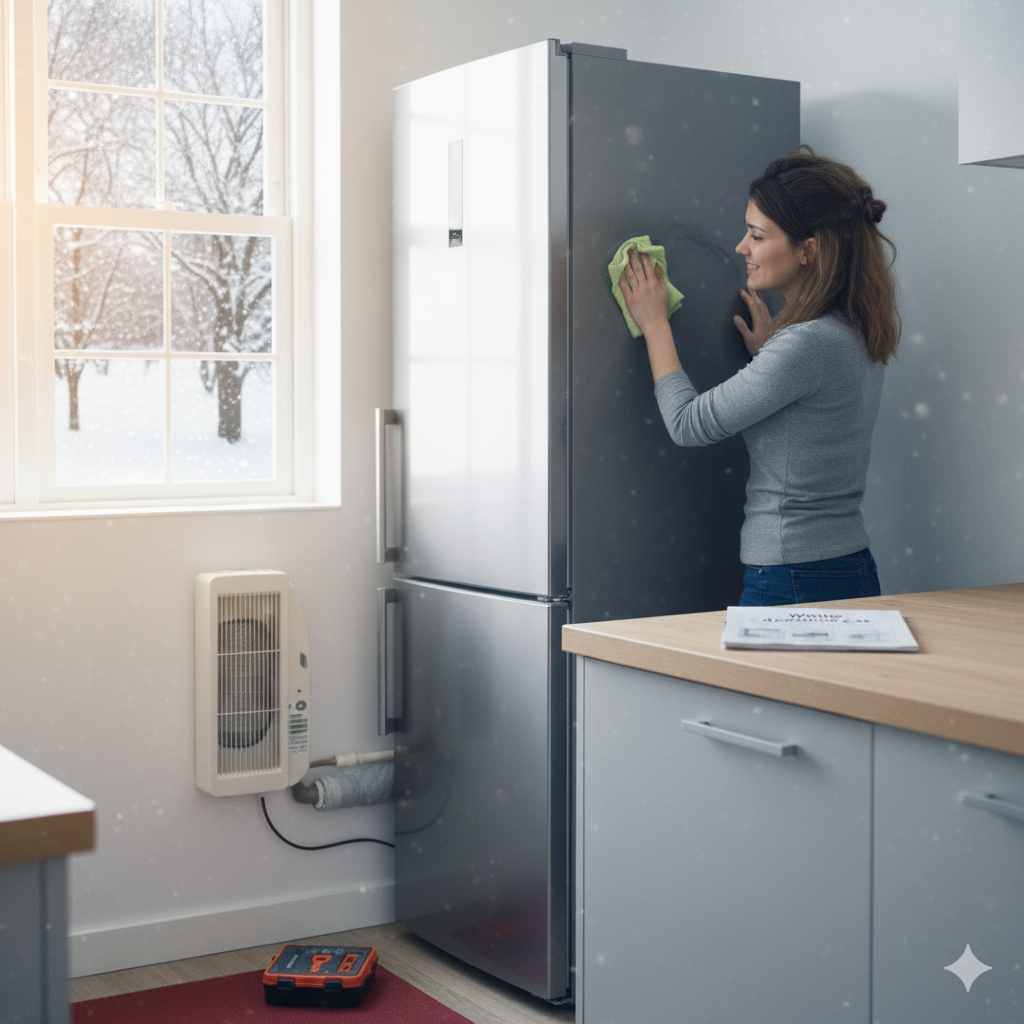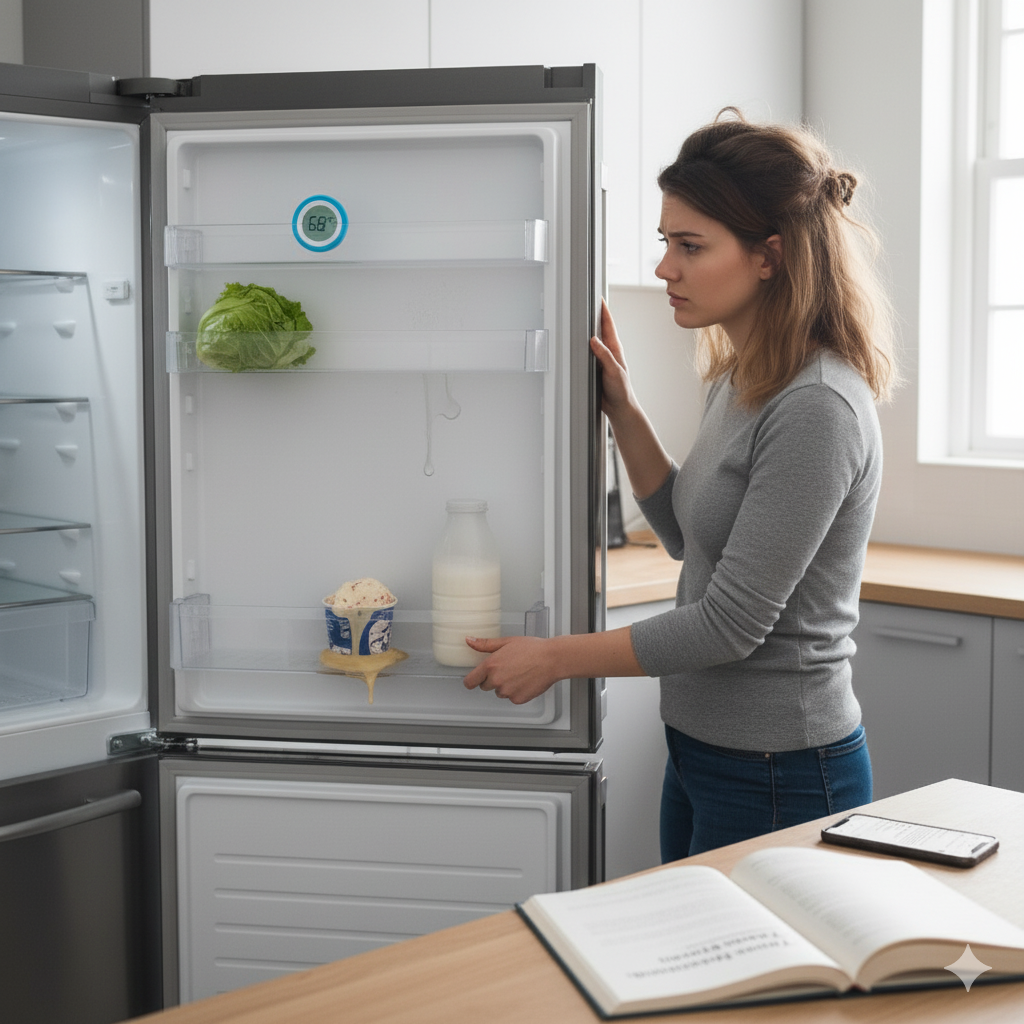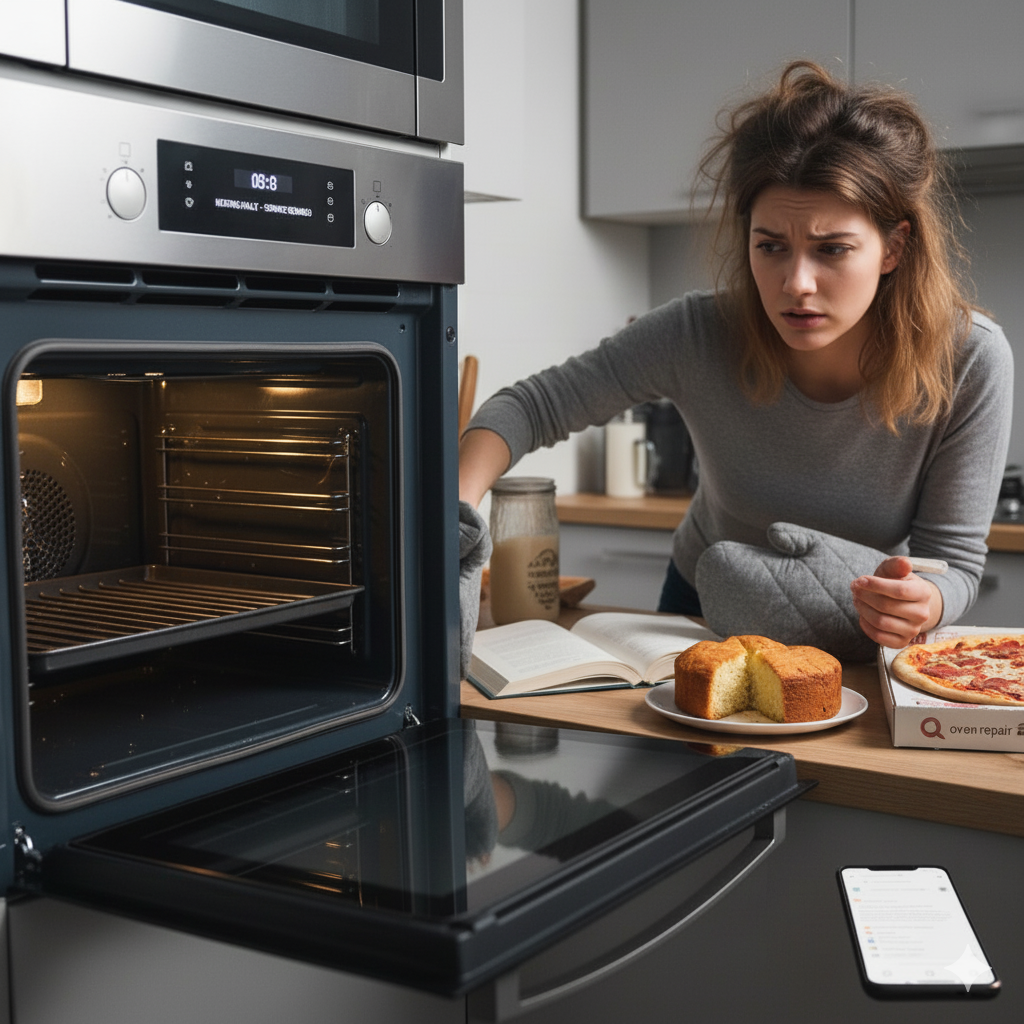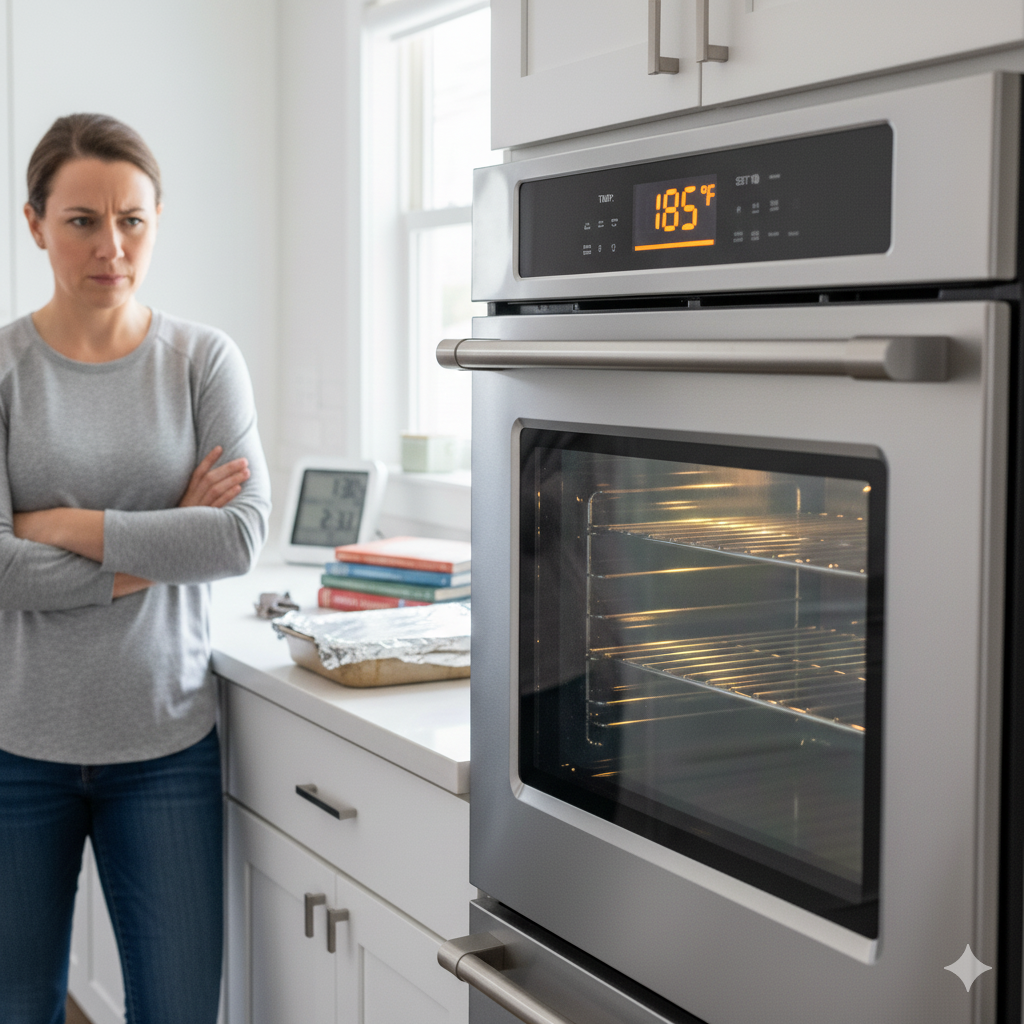The Value of Consistent Appliance Upkeep
Household appliances are the backbone of daily life, simplifying tasks like cooking, cleaning, and food preservation. From refrigerators to washing machines, these devices work tirelessly to make our routines more efficient. However, even the most reliable appliances can fail without proper care, leading to costly repairs, replacements, or disruptions. Regular maintenance is the key to ensuring appliances operate smoothly, last longer, and perform efficiently. This comprehensive guide explores why maintaining your appliances is essential, covering the benefits, practical tips for standard household devices, and the consequences of neglect. You can save money, reduce energy waste, and keep your home running seamlessly by prioritizing upkeep.
Why Appliance Maintenance Matters
Appliances are significant investments, and their longevity depends on how well they are cared for. Regular maintenance offers several advantages, including extended lifespan, improved performance, energy efficiency, and safety. Neglecting maintenance, on the other hand, can lead to breakdowns, higher utility bills, and even hazards like electrical fires. Understanding the value of proactive care empowers homeowners to protect their appliances and avoid unnecessary expenses.
Extending Appliance Lifespan
Most appliances are designed to last for years—refrigerators typically endure 10–18 years, washing machines 10–14 years, dryers 10–13 years, dishwashers 9–12 years, and ovens 10–15 years. However, these timelines assume proper usage and maintenance. Regular care, such as cleaning components and inspecting for wear, prevents premature failure. For example, cleaning a refrigerator’s condenser coils can prevent compressor strain, while maintaining a washing machine’s hoses reduces the risk of leaks.
Improving Energy Efficiency
Appliances that aren’t maintained work harder to perform their functions, consuming more electricity or gas. A clogged dryer vent, for instance, forces the appliance to run longer, increasing energy use. Regular maintenance ensures appliances operate at peak efficiency, lowering utility bills and reducing environmental impact. According to energy studies, well-maintained appliances can reduce energy consumption by up to 20% compared to neglected ones.
Related: How to Extend the Lifespan of Your Washing Machine
Enhancing Safety
Faulty appliances pose safety risks. A clogged dryer vent can cause fires, while a damaged oven gasket may lead to gas leaks or burns. Routine inspections and cleaning help identify potential hazards before they become serious, protecting your household from accidents.
Avoiding Costly Repairs
Minor issues, like a worn seal or clogged filter, can escalate into major problems if ignored. Regular maintenance catches these issues early, saving you from expensive repairs or replacements. For example, replacing a cracked washer hose costs far less than repairing water damage from a leak.
General Maintenance Practices for All Appliances
Before diving into appliance-specific tips, here are universal strategies to keep your household devices in top condition:
- Follow Manufacturer Guidelines: Every appliance comes with a user manual outlining maintenance schedules and usage instructions. Reviewing these ensures you’re caring for the device correctly.
- Clean Regularly: Dust, grease, and debris can accumulate, reducing efficiency. Wipe down surfaces, clean filters, and remove buildup to keep appliances running smoothly.
- Check for Wear and Tear: Inspect hoses, cords, seals, and other components for signs of damage. Replace worn parts promptly to prevent breakdowns.
- Avoid Overuse: Overloading appliances or using them improperly strains components. Follow capacity guidelines and use settings as recommended.
- Schedule Professional Checkups: For complex appliances, periodic professional inspections can identify issues that may not be visible to the untrained eye.
Now, let’s explore maintenance tips for specific appliances commonly found in homes.
1. Refrigerators: Preserving Food and Performance
Refrigerators run continuously to keep food fresh, making them prone to issues like poor cooling, unusual noises, or leaks. Regular maintenance ensures they stay reliable.
Clean Condenser Coils
Dust and pet hair can accumulate on condenser coils, typically located at the back or bottom of the refrigerator. This buildup forces the compressor to work harder, risking burnout. Every six months, unplug the fridge and clean the coils using a vacuum with a brush attachment or a coil brush. This simple task improves efficiency and extends the compressor’s life.
Inspect Door Gaskets
The rubber gaskets around refrigerator and freezer doors create an airtight seal to maintain cold temperatures. Cracked or dirty gaskets allow warm air to enter, straining the cooling system. Check gaskets monthly for tears or debris. Clean them with warm, soapy water and apply a thin layer of petroleum jelly to keep them flexible. Replace damaged gaskets promptly.
Monitor Temperature Settings
Set the refrigerator to 37–40°F (3–4°C) and the freezer to 0°F (-18°C) to balance efficiency and food safety. Use an appliance thermometer to verify accuracy, as built-in gauges can be unreliable. Incorrect temperatures can overwork the compressor or spoil food.
Avoid Overloading
Overpacking the fridge restricts airflow, making it harder to maintain consistent temperatures. Leave space between items and avoid blocking vents. Similarly, don’t place hot food inside, as it raises the internal temperature and strains the system.
Defrost Manual Freezers
For non-frost-free models, ice buildup in the freezer reduces efficiency. Defrost when ice exceeds ¼ inch by unplugging the unit, removing food, and letting the ice melt naturally. Avoid using sharp objects to chip away ice, as this can damage the interior.
2. Washing Machines: Keeping Laundry Hassle-Free
Washing machines handle water, detergent, and mechanical stress, making them susceptible to leaks, vibrations, and drum issues. Proper care prevents these problems.
Use Appropriate Detergent
High-efficiency (HE) washers require HE detergent to avoid excessive suds, which can clog hoses and damage components. For standard models, measure detergent carefully to prevent residue buildup. Follow the manual’s guidelines for detergent type and quantity.
Clean the Drum and Gaskets
Mold and mildew can form in the drum and door gaskets, especially in front-load washers. Run a monthly cleaning cycle with a cup of white vinegar or a washer-specific cleaner. Wipe the door gasket after each use to remove moisture and debris.
Check Hoses and Filters
Inspect water inlet hoses every six months for cracks, bulges, or leaks. Replace them every 3–5 years to prevent flooding. Clean the drain pump filter monthly to remove debris like coins or lint, and check the lint filter (if applicable) after each load.
Ensure Proper Leveling
An unbalanced washer vibrates excessively, stressing the drum and motor. Use a bubble level to confirm the machine is even. Adjust the feet as needed and tighten any loose bolts to minimize movement during cycles.
Avoid Overloading
Overloading strains the motor and suspension system, leading to wear. Follow the manufacturer’s load capacity guidelines, typically based on the volume of clothes rather than weight.
Related: Top 5 Common Refrigerator Issues and How to Fix Them
3. Dryers: Drying Clothes Safely and Efficiently
Dryers face issues like poor drying, overheating, or lint buildup, which can reduce performance and pose fire risks. Regular maintenance keeps them safe and effective.
Clean the Lint Filter
Lint accumulation is a leading cause of dryer inefficiency and fires. Clean the lint filter before or after every load. Every few months, wash the filter with warm water and a brush to remove residue from dryer sheets.
Clear the Vent System
A clogged vent restricts airflow, increasing drying time and overheating risks. Annually, clean the vent duct using a vent cleaning kit or hire a professional. Ensure the outdoor vent flap opens freely to allow proper airflow.
Inspect the Drum and Belt
Unusual noises, like squeaking or thumping, may indicate a worn belt or damaged drum. Check the drum for cracks or sharp edges that could damage clothes. Schedule professional repairs for these issues to avoid further damage.
Avoid Overloading
Overloading prevents proper tumbling, increasing drying time and straining components. Dry smaller loads to ensure efficient operation.
Related: DIY Guide to Replacing a Refrigerator Water Filter
4. Dishwashers: Clean Dishes with Minimal Effort
Dishwashers simplify cleanup but can develop leaks, poor cleaning, or drainage issues without proper care. Here’s how to maintain them:
Clean Filters and Spray Arms
Most dishwashers have a removable filter that traps food particles. Clean it monthly under running water with a soft brush. Check spray arms for clogs by removing them (per the manual) and rinsing out debris to ensure proper water flow.
Use the Right Detergent
Use dishwasher-specific detergent and measure carefully to avoid residue buildup. Liquid dish soap creates excessive suds, damaging the pump. If hard water is an issue, use a rinse aid to prevent mineral deposits.
Check the Door Seal
A dirty or worn door seal can cause leaks. Wipe it weekly with a damp cloth and inspect for cracks. Replace damaged seals to maintain a watertight compartment.
Run Cleaning Cycles
Grease and mineral buildup can reduce cleaning performance. Run a monthly cleaning cycle with a cup of white vinegar in an upright container on the top rack or use a commercial dishwasher cleaner.
Load Correctly
Improper loading blocks spray arms, reducing cleaning effectiveness and straining the motor. Follow the manual’s loading guidelines, ensuring dishes don’t overlap and spray arms rotate freely.
5. Ovens and Stoves: Reliable Cooking Performance
Ovens and stoves are prone to uneven heating, faulty burners, or temperature issues. Regular maintenance ensures consistent cooking.
Clean Regularly
Spills and grease can affect performance and create odors. Clean the oven interior every few months with a non-abrasive cleaner or a baking soda paste. For gas stoves, clean burner grates and caps to ensure even flames.
Inspect the Door Gasket
A damaged gasket causes heat loss, leading to uneven cooking and higher energy use. Check for cracks or wear and replace if necessary.
Calibrate the Thermostat
If food cooks unevenly, the thermostat may be inaccurate. Use an oven thermometer to check temperature accuracy and calibrate per the manual or hire a professional.
Check Gas and Electric Components
For gas stoves, ensure burners ignite quickly with blue, steady flames. Yellow or uneven flames indicate gas flow issues requiring professional attention. For electric stoves, inspect coils for cracks or burn marks and replace as needed.
6. Microwaves: Quick and Safe Heating
Microwaves can develop sparking, uneven heating, or turntable issues. Proper care ensures safe operation.
Keep It Clean
Food splatters can cause arcing or odors. Wipe the interior after each use with a damp cloth and mild detergent. Clean the turntable regularly.
Use Microwave-Safe Containers
Avoid metal containers or foil, which can spark and damage the magnetron. Use microwave-safe dishes and covers to prevent splatters.
Inspect the Door and Seals
A damaged door or seal can leak microwaves, posing safety risks. Check for dents or warping and ensure the door closes securely. Replace faulty components immediately.
Additional Strategies for Appliance Care
Beyond appliance-specific tips, consider these practices to enhance longevity:
- Use Surge Protectors: Electrical surges can damage circuits. Plug appliances into surge protectors to prevent damage from power fluctuations.
- Address Hard Water: Hard water causes mineral buildup in appliances like dishwashers and washers. Consider a water softener if hard water is prevalent.
- Ensure Proper Ventilation: Appliances like dryers and refrigerators need adequate airflow to prevent overheating. Follow manual guidelines for spacing.
- Act on Warning Signs: Unusual noises, leaks, or performance issues are early indicators of problems. Investigate promptly to avoid major failures.
When to Seek Professional Help
While DIY maintenance handles most issues, some problems require expert attention. Contact a technician for:
- Persistent electrical issues, like tripping breakers.
- Gas leaks or unusual smells from gas appliances.
- Major component failures, such as a refrigerator compressor or washer motor.
- Error codes that don’t resolve after basic troubleshooting.
The Consequences of Neglecting Maintenance
Skipping maintenance can lead to serious issues:
- Frequent Breakdowns: Neglected appliances fail more often, requiring costly repairs.
- Higher Energy Bills: Inefficient appliances consume more power, increasing utility costs.
- Safety Hazards: Clogged vents, faulty wiring, or gas leaks pose risks like fires or carbon monoxide exposure.
- Shortened Lifespan: Without care, appliances may need replacement years earlier than expected.
Conclusion
Regular appliance maintenance is a small investment of time and effort that yields significant rewards. By cleaning components, inspecting for wear, and following manufacturer guidelines, you can extend the life of your refrigerators, washing machines, dryers, dishwashers, ovens, and microwaves. Maintenance not only prevents breakdowns but also enhances efficiency, reduces energy costs, and ensures safety. Start incorporating these practices into your routine to keep your appliances in top shape and your home running smoothly for years to come.
